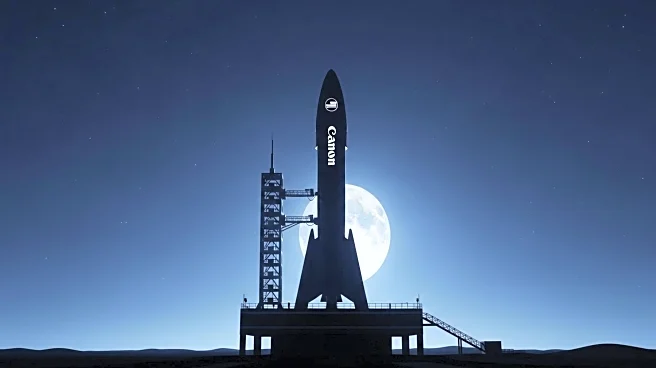What's Happening?
SpaceX is preparing for its next Starship test, Flight 11, scheduled for October 13, 2025. This launch marks the final test of the current 'Block 2' version, aiming to replicate previous flight profiles while testing new landing techniques and a reinforced heat shield. NASA is relying on SpaceX's Starship for its Artemis III mission, targeting a crewed lunar landing by 2027. Meanwhile, China is advancing its lunar ambitions, planning its first moonwalk by 2030. The complexity of NASA's plan has raised concerns among experts, with former NASA chief Jim Bridenstine questioning the strategy of using Starship to beat China to the moon. Acting NASA boss Sean Duffy remains confident, asserting that the U.S. will win the second space race against China.
Why It's Important?
The developments in space exploration have significant implications for international competition and technological advancement. SpaceX's success could bolster U.S. leadership in space, influencing tech earnings and market dynamics. The race to the moon is not just about national pride but also about strategic dominance in space technology, which could lead to innovations similar to those from the Apollo era. The outcome of SpaceX's test could impact NASA's timeline and strategy, potentially affecting billions in investments and the future of lunar exploration. China's accelerated lunar program poses a challenge to U.S. ambitions, highlighting the geopolitical stakes involved.
What's Next?
If SpaceX's Flight 11 is successful, it will pave the way for further tests and potentially reassure NASA about its choice of Starship for lunar missions. Failure could intensify skepticism and pressure NASA to reconsider its strategy. The space community will closely monitor the test's outcome, which could influence future milestones, including vertical landing attempts and orbital flight tests. Political leaders and investors will be watching closely, as the results could steer the direction of space exploration and industry for the next decade.
Beyond the Headlines
The moon race reflects broader geopolitical tensions and the quest for technological supremacy. The ethical and strategic dimensions of space exploration are significant, as countries vie for dominance in a domain that could shape human history. The long-term implications include potential shifts in global power dynamics and the role of private companies in space exploration. The collaboration and competition between nations and corporations could redefine the future of space policy and innovation.









